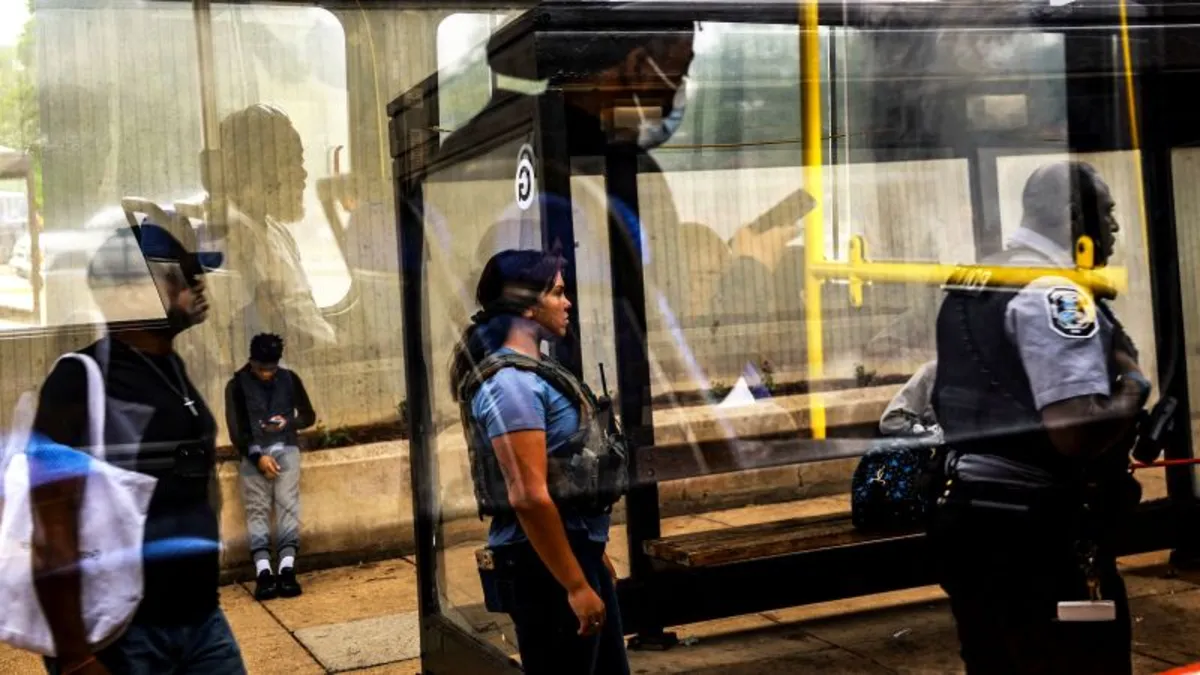
President Donald Trump has opted to allow his 30-day takeover of Washington, DC’s Metropolitan Police Department to lapse on Wednesday, according to White House officials who spoke with CNN. This decision comes as Trump believes that the city has made significant strides in cooperating with federal authorities. The officials pointed out that the recent executive order signed by DC Mayor Muriel Bowser last week, which emphasizes indefinite collaboration with federal law enforcement, aligns with their objectives without necessitating a legislative extension that typically requires congressional approval.
In the past, Trump has expressed his commitment to pressuring lawmakers for the continued federalization of the DC police force. However, following Mayor Bowser’s order, White House officials indicated that he has since abandoned efforts to persuade GOP lawmakers to support such a bill, which would necessitate some level of Democratic backing in the Senate. "She committed to indefinitely coordinate with federal law enforcement," one official stated, emphasizing that the term "indefinitely" is crucial to their approach.
The White House has reportedly engaged in discussions regarding its revised plans with House Speaker Mike Johnson. The Louisiana Republican previously conveyed that the House would not move forward with a vote to extend the crime emergency that allowed for the temporary federalization of the Metropolitan Police Department, asserting that his “understanding is it’s not necessary.” Nevertheless, the GOP-led House Oversight Committee is currently reviewing over a dozen bills aimed at further limiting Washington, DC’s self-governance, imposing stricter penalties, and reversing various criminal justice reforms in the city.
The potential legislation includes measures that would strip residents of their rights to elect their own attorney general, target homeless encampments, and implement initiatives to “beautify” the city. Additionally, it proposes lowering the age at which juveniles can be tried as adults. The specific language of the legislation has yet to be finalized and may undergo amendments during the ongoing debates.
In a letter to the committee’s leadership, Mayor Bowser expressed that the proposed legislation could render the district “less efficient, competitive, and responsive,” and ultimately “less safe” and “less democratic.” Meanwhile, DC Attorney General Brian Schwalb argued that the bill would undermine the ability of District residents to influence the selection of their local leaders. He cautioned that it would instead favor an Attorney General who would be accountable to the President rather than the citizens of Washington, DC.
Mayor Bowser has maintained that Washington does not require a “federal emergency” and has challenged the White House’s interpretation of her executive order. She clarified that the order is intended as a means to transition away from federal oversight, providing “a framework for how we will exit the emergency.” She noted that the emergency is set to conclude on September 10, with any legal extension necessitating congressional approval.
As questions linger about the duration of the National Guard's presence in the streets of Washington, DC, it's important to note that their deployment is not bound by the same stringent time restrictions imposed by federal law. Reports from CNN suggest that the military orders for the National Guard troops stationed in the city are anticipated to be extended through December.
This evolving situation continues to unfold, and updates will follow as new information becomes available.